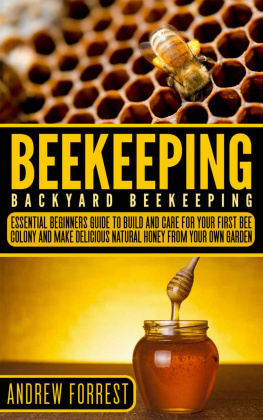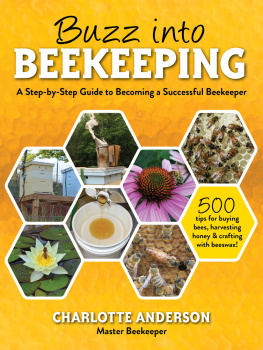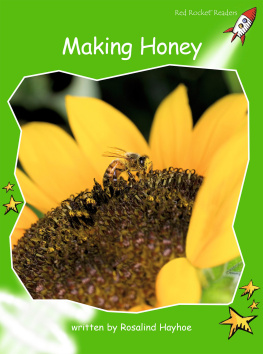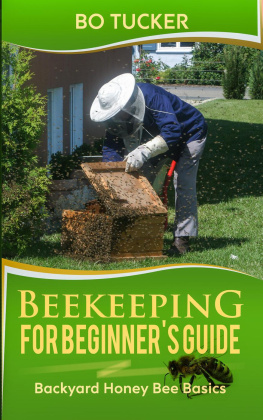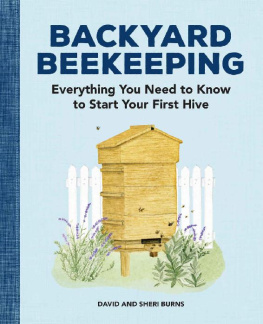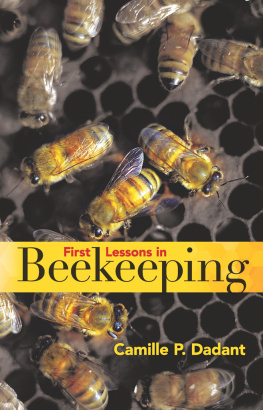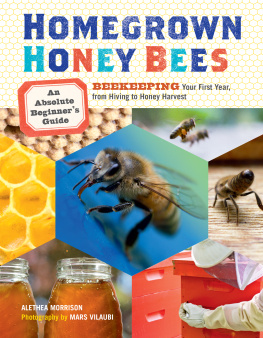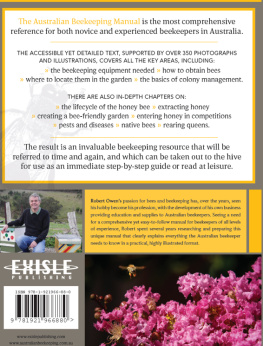Andrew Forrest - Beekeeping: Backyard Beekeeping: Essential Beginners Guide to Build and Care For Your First Bee Colony and Make Delicious Natural Honey From Your Own Garden
Here you can read online Andrew Forrest - Beekeeping: Backyard Beekeeping: Essential Beginners Guide to Build and Care For Your First Bee Colony and Make Delicious Natural Honey From Your Own Garden full text of the book (entire story) in english for free. Download pdf and epub, get meaning, cover and reviews about this ebook. year: 2020, publisher: Red Kite Publishing, genre: Home and family. Description of the work, (preface) as well as reviews are available. Best literature library LitArk.com created for fans of good reading and offers a wide selection of genres:
Romance novel
Science fiction
Adventure
Detective
Science
History
Home and family
Prose
Art
Politics
Computer
Non-fiction
Religion
Business
Children
Humor
Choose a favorite category and find really read worthwhile books. Enjoy immersion in the world of imagination, feel the emotions of the characters or learn something new for yourself, make an fascinating discovery.
- Book:Beekeeping: Backyard Beekeeping: Essential Beginners Guide to Build and Care For Your First Bee Colony and Make Delicious Natural Honey From Your Own Garden
- Author:
- Publisher:Red Kite Publishing
- Genre:
- Year:2020
- Rating:5 / 5
- Favourites:Add to favourites
- Your mark:
Beekeeping: Backyard Beekeeping: Essential Beginners Guide to Build and Care For Your First Bee Colony and Make Delicious Natural Honey From Your Own Garden: summary, description and annotation
We offer to read an annotation, description, summary or preface (depends on what the author of the book "Beekeeping: Backyard Beekeeping: Essential Beginners Guide to Build and Care For Your First Bee Colony and Make Delicious Natural Honey From Your Own Garden" wrote himself). If you haven't found the necessary information about the book — write in the comments, we will try to find it.
Dont Worry BEE HAPPY! Start your Bee colony today !
There are 140,000 beekeepers in the United States keeping 3.2 million beehives. American beekeepers produced 200 million pounds of honey a year. In addition, honey bees pollinate and make possible many of the fruits and vegetables that make up the American diet.
In fact, the annual contribution of honey bees to crop pollination and production is over nine billion dollars. But to tell the truth, these are not the reasons why many beekeepers have kept bees. Most keep bees because they enjoy the outdoors.
They enjoy helping a young colony grow in spring. They enjoy watching the bees make honey. They enjoy harvesting, bottling, and selling honey as well. If you raise animals or work with wood, grow a garden or have an entrepreneurial spirit, you might be a candidate for beekeeping.
Youd be surprised at how gentle they can be, and of the many places where you can keep bees. In this book, well go ahead and discuss the basics of backyard beekeeping. As an example, well set up ten bee hives from scratchthat is with packages of bees in the mail, just like what veteran beekeepers did when they were starting out.
This book will help you follow the progress of this bee yard, or apiary, as it matures and develops in to a full blown colony, so you will see what you can expect. But before we begin, lets look at some other history of beekeeping.
Here Are Some of the Great Stuff You Will Learn:-
- Starting Your Apiary
- Assembling the Hive
- Preparing Food Supplements and Medications
- Bee Biology, Equipment, and Bee Installation
- Bee Management
- Harvesting, processing and storing the Honey
and Much more!
Why delay?
Start your Own Bee Colony today ! Its cheaper than you think!
Right now you could be enjoying delicious honey right from your backyard, Take action today and Learn vital information on starting Beekeeping by downloading this book Today!
Andrew Forrest: author's other books
Who wrote Beekeeping: Backyard Beekeeping: Essential Beginners Guide to Build and Care For Your First Bee Colony and Make Delicious Natural Honey From Your Own Garden? Find out the surname, the name of the author of the book and a list of all author's works by series.

